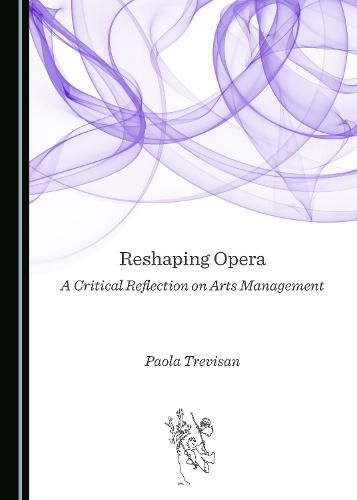Readings Newsletter
Become a Readings Member to make your shopping experience even easier.
Sign in or sign up for free!
You’re not far away from qualifying for FREE standard shipping within Australia
You’ve qualified for FREE standard shipping within Australia
The cart is loading…






This title is a part of the series Schwung ; Critical Curating and Aesthetic Management for Art, Business and Politics.Conventional wisdom holds that the performing arts, due to the economic nature of the sector, are condemned to a state of permanent financial crisis. However, increasingly frequent information about the fiscal troubles of several opera houses has also led to questions about the soundness of the strategies adopted by these organizations, and about the administrative abilities of their general managers.The case narrated here (La Fenice, Venice’s main opera theater), represents a successful case in which, still inside the borders of a subsidized cultural production, a managerial turn led to substantial improvements in efficiency and productivity levels. However, the success of a case such as La Fenice in terms of bottom-line fiscal indicators does not imply immunity to critiques.The description and analysis of the case, far from being presented as a best practice with any claim of generalization, allows for a critical reflection on arts management, starting from the tension between art and commerce discussed initially by the Frankfurt School.Critiques not only challenge the dominant meaning of what is considered good and what is not: they also contribute to the reshaping of a new social order. Only by looking at the whole picture, at both dominant and critical voices, can we come to a greater understanding of current ideological stances in the arts world and contextualize them within existing discourses on art, management studies, and arts management.
$9.00 standard shipping within Australia
FREE standard shipping within Australia for orders over $100.00
Express & International shipping calculated at checkout
This title is a part of the series Schwung ; Critical Curating and Aesthetic Management for Art, Business and Politics.Conventional wisdom holds that the performing arts, due to the economic nature of the sector, are condemned to a state of permanent financial crisis. However, increasingly frequent information about the fiscal troubles of several opera houses has also led to questions about the soundness of the strategies adopted by these organizations, and about the administrative abilities of their general managers.The case narrated here (La Fenice, Venice’s main opera theater), represents a successful case in which, still inside the borders of a subsidized cultural production, a managerial turn led to substantial improvements in efficiency and productivity levels. However, the success of a case such as La Fenice in terms of bottom-line fiscal indicators does not imply immunity to critiques.The description and analysis of the case, far from being presented as a best practice with any claim of generalization, allows for a critical reflection on arts management, starting from the tension between art and commerce discussed initially by the Frankfurt School.Critiques not only challenge the dominant meaning of what is considered good and what is not: they also contribute to the reshaping of a new social order. Only by looking at the whole picture, at both dominant and critical voices, can we come to a greater understanding of current ideological stances in the arts world and contextualize them within existing discourses on art, management studies, and arts management.